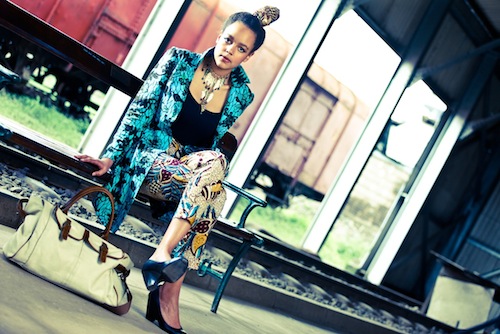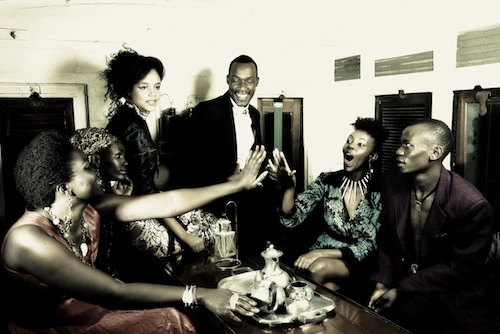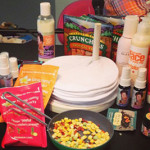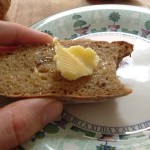In 1992, Ann McCreath tired of the fashion industry in Barcelona. That year, she was asked to cancel an order of 20,000 dresses on any technical grounds, and not pay for them or the 10,000 which were in the stores and not selling. She found it unethical, resigned and left for Africa.
This would be her second trip.
It was there, working with Médecins Sans Frontières (MSF), that Ann found herself entering an entirely different kind of fashion industry – this one, with an entirely different set of ethics.
“I found Kenya fascinating,” she shared with us in an email interview. “I stayed on and became the Head of Mission [at MSF]. After three years of that, I felt that emergency aid was not the answer to chronic emergencies & decided I would be more helpful setting up a fashion business – both to create employment in women’s groups, and to give people something fashionable & homegrown, so that they could take pride in their arts and culture.”
Over ten years later, Ann is a designer at KikoRomeo, a fashion house in Nairobi providing many local professionals with full time jobs, as well as outsourcing craft and stitching to other local economies, and pushing African design inspiration and production on a global scale.
We chatted via email with Ann this past week to get an inside view on her work, and what it looks like to be a pioneer in Kenya’s fashion industry.
FGS: What is the business model at KikoRomeo – everything is made in Kenya, correct?
AM: Yes
FGS: What does that process look like?
AM: Many of the fabrics are imported, some then tie dyed or hand painted. Buttons are usually handcrafted locally by artisans. Printed fabrics are usually imported as we can’t get the right quality of fabrics for fashion here, though we use a lot of the Kenyan poly cottons and poly viscose for corporate uniforms.
FGS: Can you tell us a little more about what this process looks like – honoring the vibrancy and history of Kenya, while bringing something thats globally appealing to the table?
AM: KikoRomeo is African in design inspiration and production. In regards to designs, we do have some Kenyancentric designs, as we live and work here. We look at global trends as well as local trends and find our niche within that.
FGS: How is this kind of work differentiate itself from sweat shops or harsh work women have done in the past?
AM: I haven’t really seen sweat shops in Kenya. The harshest work I have seen is more domestic chores such as carting water long distances combined with being a mother & wife & therefore having to feed the family, as well as work. There’s never any time for a woman to think of herself.
FGS: What kinds of shifts has KikoRomeo brought to fashion in Nairobi?
AM: KikoRomeo has been a true pioneer in Kenyan fashion. Due to my experience in the fashion industry in Italy and Spain, as well as exposure in Africa, I was able to inspire, mentor and influence many upcoming designers into how to better represent and position their brand, how to put a collection together, how to do a show, how to market, how to cut etc etc. As regards rural women, I was able to teach illiterate Maasai women how to follow a non-traditional design using their bead work (sounds easy, but not to someone who isn’t used to looking at a drawing). Others I taught were women in a knitting group – showed them how to be inspired by second hand clothes and the environment around them to create new knitwear designs. We have helped models in photo shoots, catwalk etc..helped others in personal branding – how to dress for certain occasions, etc.
FGS: What challenges have you overcome along the way?
AM: It has been a lot more difficult than I expected. I was very dependent on the local economy for retail, so my business has gone up and down with the vagaries of that economy. Additionally, when I got export orders in early 2001, there was a huge problem with the supply chain due to a lack of cotton. However with the global market place, technology and all predictions that Kenya is set to boom, we are back at it again, now selling in Milan and London & ready to go global. I would love to take Kenyan fashion to the world, both as the brand KikoRomeo, and as the fashion event FAFA, which gives African fashion brands and models an opportunity to be seen worldwide.
FGS: What has your other work in the African fashion industry involved?
AM: I founded Fashion for Peace & FAFA with like minded individuals who wanted to use culture to bring different people together. “Unity in Diversity” is our tag line. I am the Chair and volunteer a huge amount of my time in developing it and fundraising for our events.



